 |
 |
 |
 |
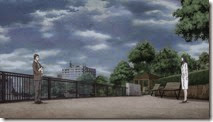 |
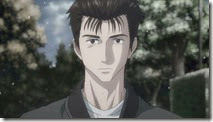 |
What do you get the ep that has everything?
I have to say I’m loving this tennis match between the two elite shows (by a country mile) of this season. It’s like Federer hits his Mozart forehand every Wednesday, then Nadal comes back with his textbook windmill topspin the next day. Like Federer and Nadal these shows are so different in every way, yet both genius on their own terms – the challenge Akatsuki no Yona serves up with its balance, sensitivity and humor, Kiseijuu whips back the next day with its raw and visceral power. The downside, of course, is that it’s like we have to wait six days for Federer to get another crack at the ball every week.
The last few episodes of Parasyte have been really exceptional, probably the best stretch of what was already a superb series. It’s taken on that quality of making 22 minutes feel like five, each ep a live-wire of gripping tension and an ever-growing sense of dread. We’re relatively close to the end now – 7 episodes remain – and it’s to Iwaaki-sensei’s credit that the endgame is devilishly hard to predict. While Madhouse has adapted the story at a fairly consistent clip and can complete things in 24 episodes without having to rush the pacing, things are still growing more complicated and difficult even this far into the series. It’s easy to see why Togashi Yoshihiro was so influenced by Kiseijuu.
Reiko/Ryouko (whichever you like – I’ll stick with Ryouko for consistency’s sake) has been an “other” from the moment of her introduction. It was with Ryouko that we really began to sense that there was much more to these parasytes than mindless B-movie eating machines – she had a different way of thinking than anyone else in the series, of either species. Bu even I’ve been surprised by just how much this has turned out to be her story as much as Shinichi’s. In many ways one could argue that Ryouko has changed more than anyone else in the series, and that she even more than Shinichi (oddly enough) stands at the crossroads between human and parasite. The event that spurred all that into high gear, of course, was the birth of her “son” – and it’s been perhaps the defining event in the entire story so far.
We see so much going on as Kusano-san and his two allies move in for the kill on Ryouko. It reveals a split within the Hirakawa group – in fact, it’s only these three who’ve decided Ryouko is a threat to their species (I suspect they’re right) big enough to take her out now. And we see the pleasure this gives Ryouko, because it shows that her species is indeed showing increasing strains of individuality (she even displays a little flash of individuality by noting – in English) that the trio has decided to “lynch” her). But of course the reason Ryouko can be so carefree is that she knows that these three opponents are no match for her, as she soon proves with a move I confess I didn’t see coming (and don’t quite understand) – she “splits” herself, entering the body of one of her assailants while the other “half” takes off with the top of her head missing, laughing wildly. As always Kiseijuu artfully presents the absurdly funny alongside the existentially gut-wrenching – watching that all-mouth head run about and freak out the passers-by is one of the funniest anime moments of the season.
Ryouko is going to win this facedown, that’s pretty clear, although Kusano-san is neither weak nor stupid. And one of the reasons she will win is the advantage her more-developed individuality gives her – she can think around corners the more literal-minded parasytes cannot. But as I watched this episode, I was struck by the fact that Hunter x Hunter’s “Chimera Ant” arc may share more with Kiseijuu than simply the resemblance between Menthuthuyoupi and Gotou-san. As the eventual downfall of the Chimera’s conquest of humanity was foreshadowed in the moment the Queen’s Squadron Leaders asked for names, perhaps the doom of the Parasytes’ conquest of humanity was cast when Ryouko began to display more complex, individualistic thoughts and emotions. Like the Chimera, the Parasytes are children in this world – overpowered children, yes, but unprepared to deal with the challenges individualism paired with great intelligence present.
It seems to me that this theme is very much present in the final portion of this episode, where Kuramori-san finally meets the fate we all knew awaited him after last week’s episode. He’s kidnapped Ryouko’s baby and left her a ransom note, telling her to meet him at “Hikari Park 1”. Her response is a fascinating one – she goes to Shinichi’s house. When she doesn’t find him there she leafs through the family photos on his laptop, many of them featuring his mother. And she thinks of Tamara Ryouko’s mother, whose worry caused her to come to her daughter’s apartment – where the parasite Ryouko took her life. And when Satomi comes searching for Shinichi, Ryouko (who Murano doesn’t recognize) tells her not to worry – Shinichi is “much stronger than she thinks”, and he’ll be fine.
Kuramori’s end is a sad one, all the more so because I certainly believe him when he says he’d never have killed Ryouko’s baby (though he’s wrong in saying no human would). What did Kuramori want – did he go to that park fully expecting Ryouko to kill him? I believe he did – I think he’d convinced himself he had no reason to go on living – but what did he want from Ryouko? Perhaps to see for himself just what emotion she was and wasn’t capable of regarding her “son” – to see if it was possible to make her feel some of the fear and anguish he’d felt as a parent. And in the end I think the answer he got surprised him, though perhaps didn’t displease him. Kuramori also, in the end, declines to sell out Shinichi either practically or spiritually – he refers to him as a “human being who’s suffered, and had things taken from him” and doesn’t give up his name to Hirama-san.
Without slighting Kuramori in the slightest – he was a good character, and got a darn good tragic death – the most important thing here is the matter of what Ryouko has planned for Shinichi. When Shinichi calls home after hearing his father has (Da-dum!) left his hotel for some reason and (to his shock) finds her at his house, she tells him to meet him at Hikari 1 20 minutes after her meeting with Kuramori. She wants to “give him something, because he’s half-human and half-parasite” – which she presumably would have done had he been home. But what does this mean? My initial thought was that Ryouko planned to give Shinichi her son, who might be argued to likewise be half-and-half – but why? Might she have felt Shinichi could emotionally care for the baby in ways she couldn’t, and might the reaction she felt when Kuramori threatened him change her mind?
Alternatively, perhaps Ryouko plans to give Shinichi information about the Hirakawa group and her species – to sell them out, having concluded that the human cause is the more just. Or perhaps she even had thoughts to “give” herself – to repeat her trick during the fight, and to merge with Shinichi and Migi, but this time voluntarily. It’s a huge cliffhanger, because it’s crystal clear that this meeting between Shinichi and Ryouko in the park is a watershed moment for Kiseijuu in every way. And that’s a fitting way to end a spellbinding and brilliant episode that seemed to end almost as soon as it began.
 |
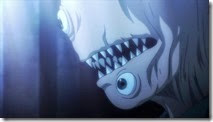 |
 |
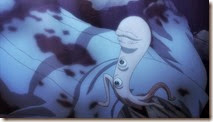 |
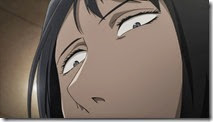 |
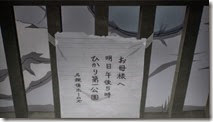 |
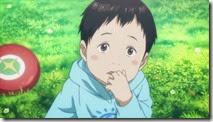 |
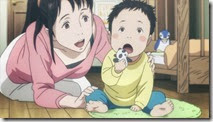 |
 |
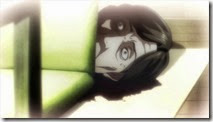 |
 |
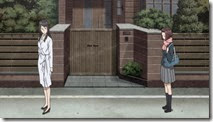 |
 |
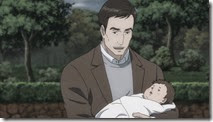 |
 |
 |
 |
 |
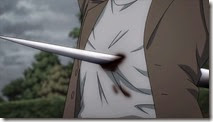 |
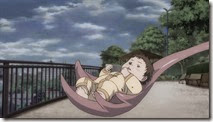 |
 |
 |
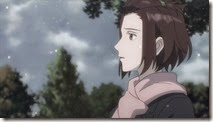 |
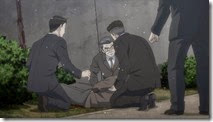 |
 |
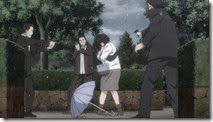 |
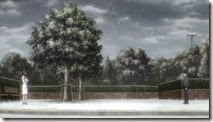 |


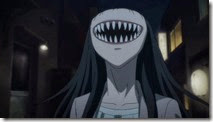
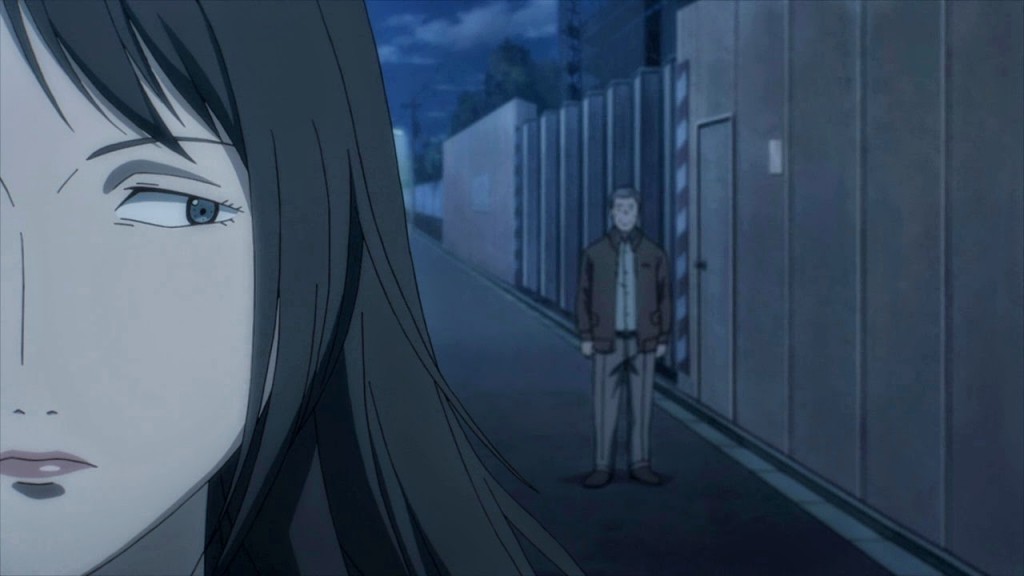
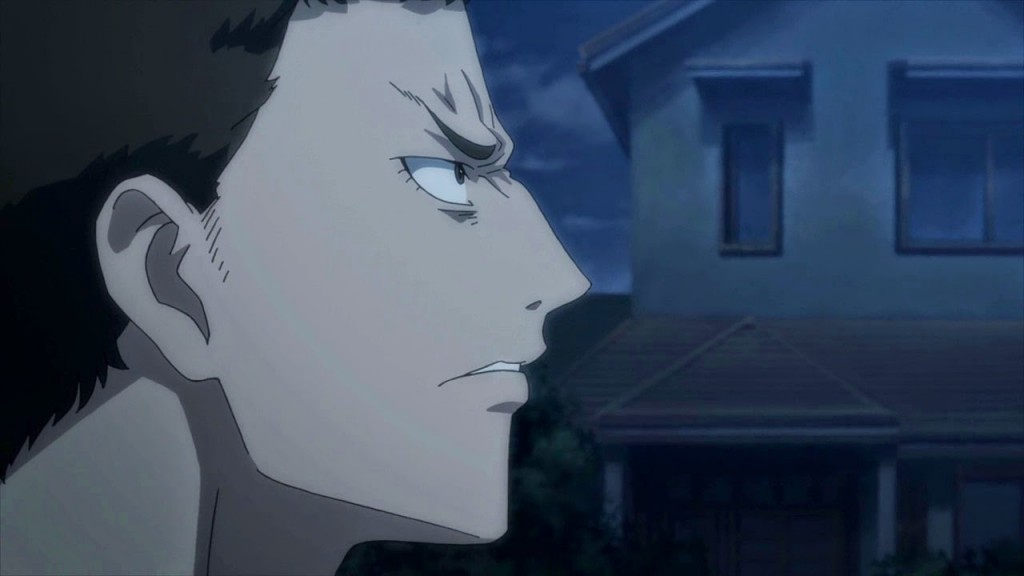
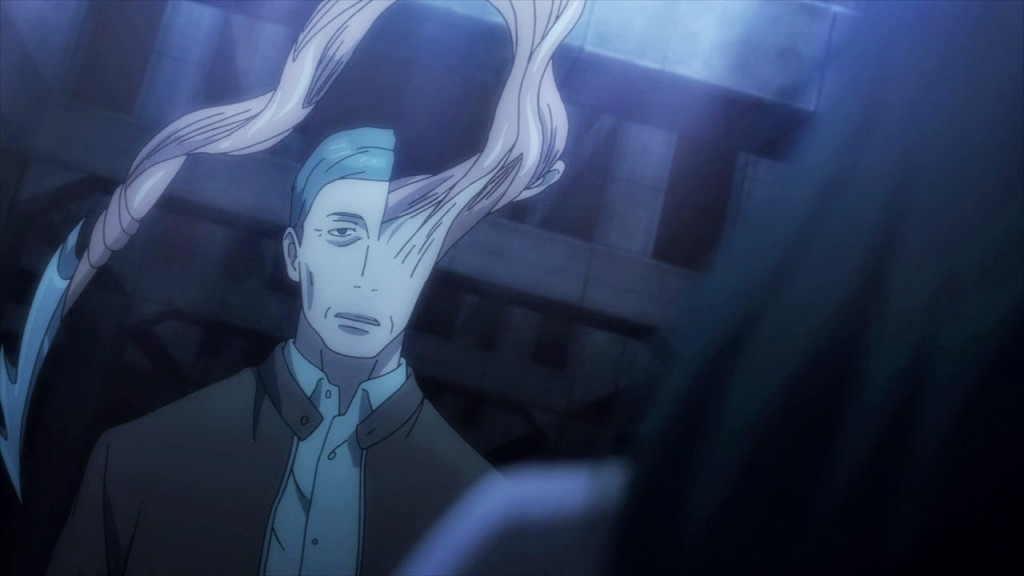
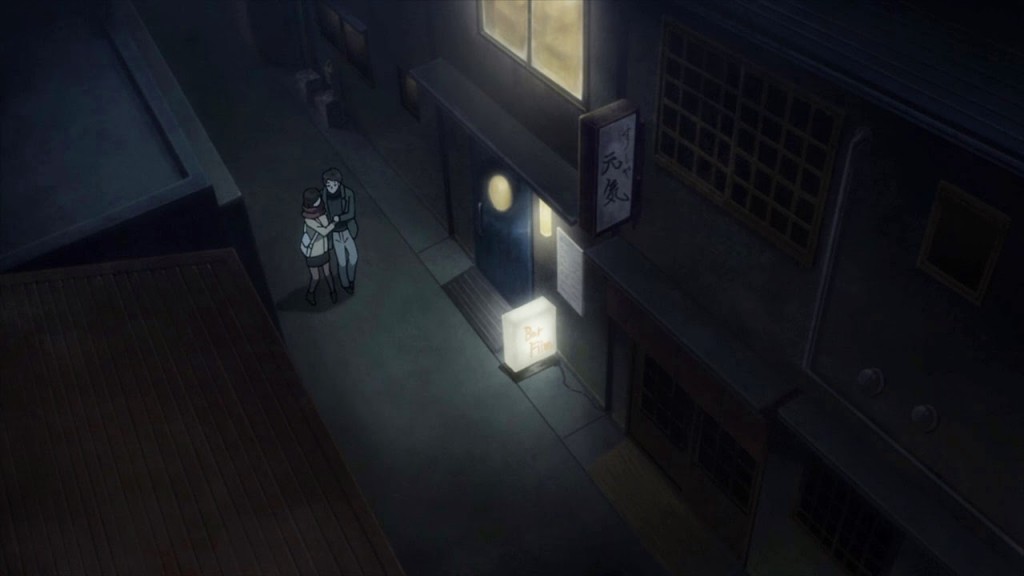
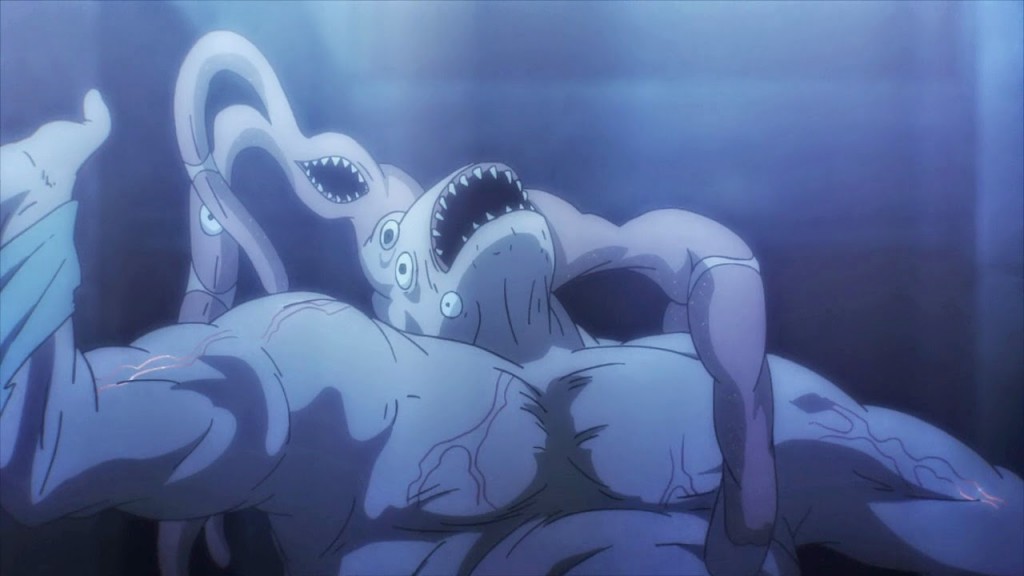
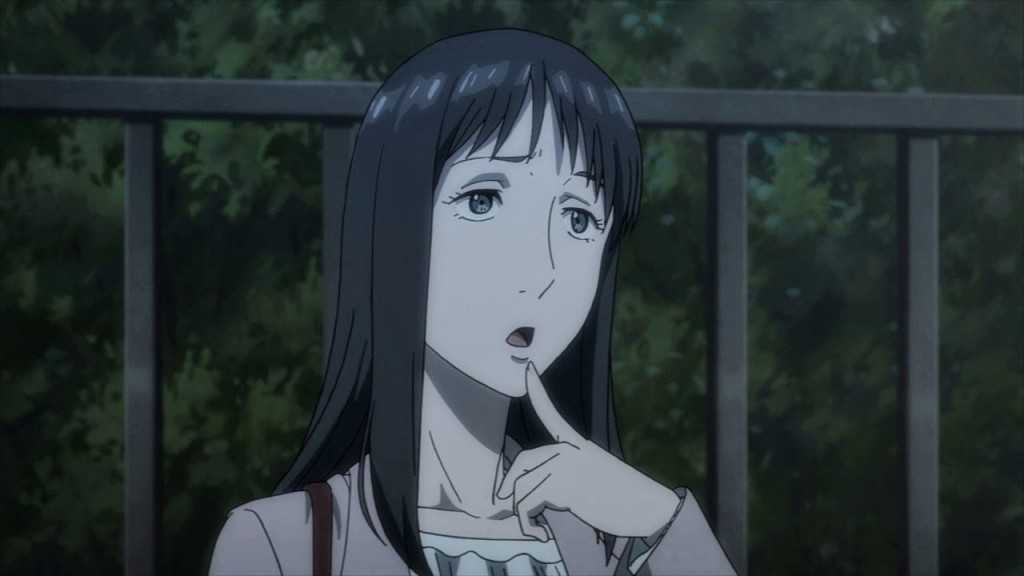
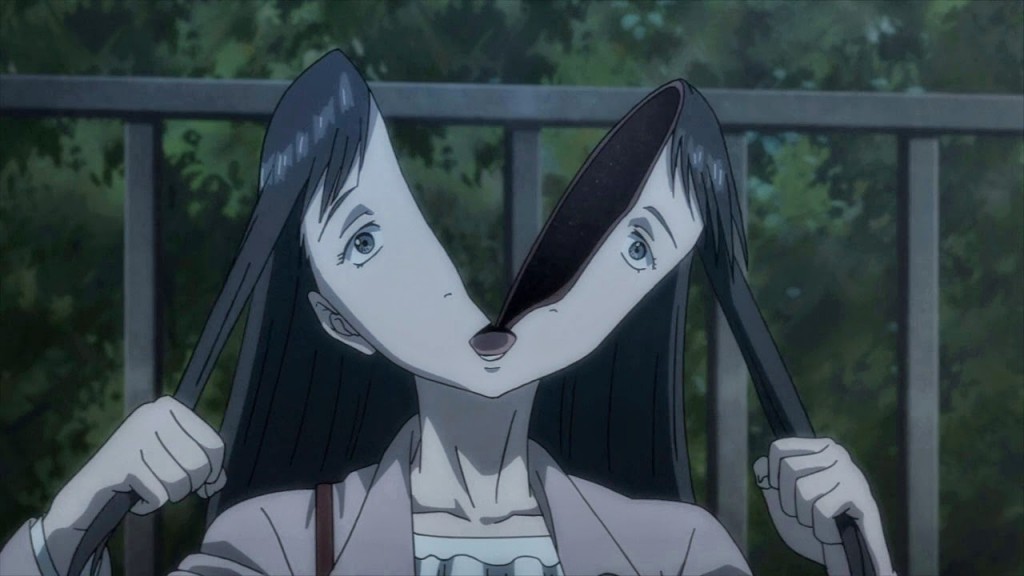
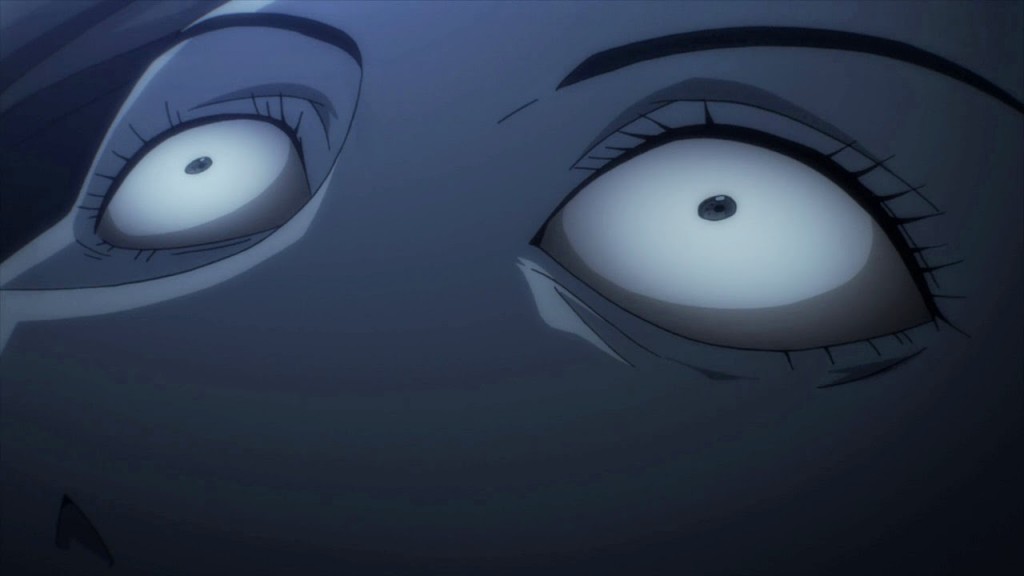
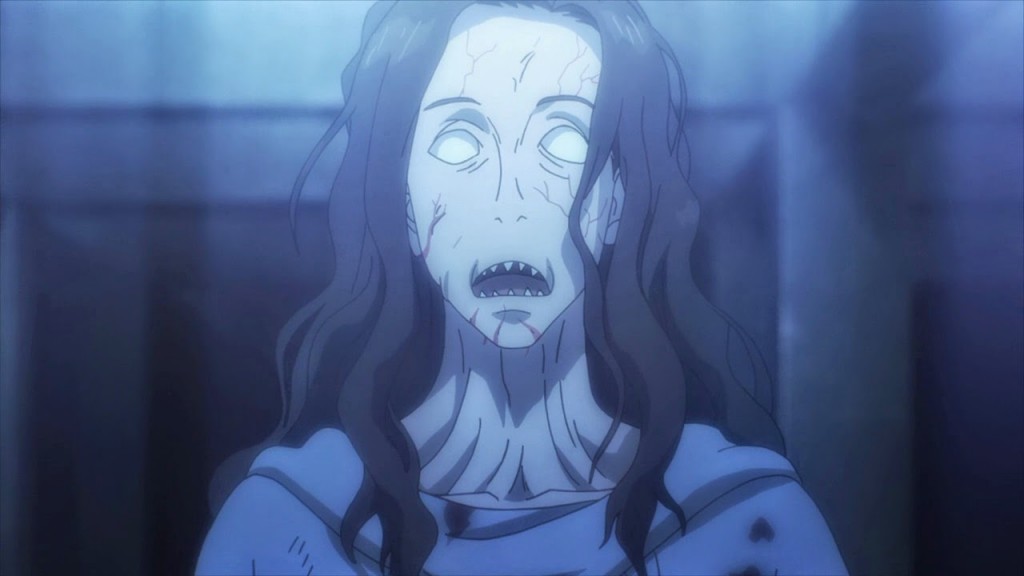
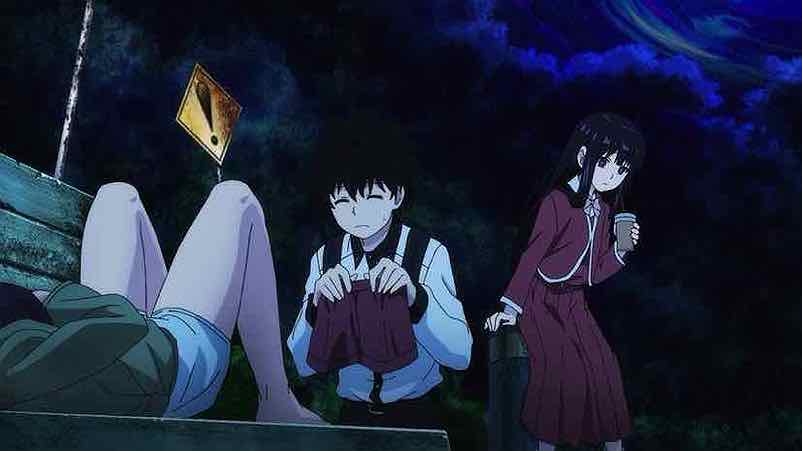
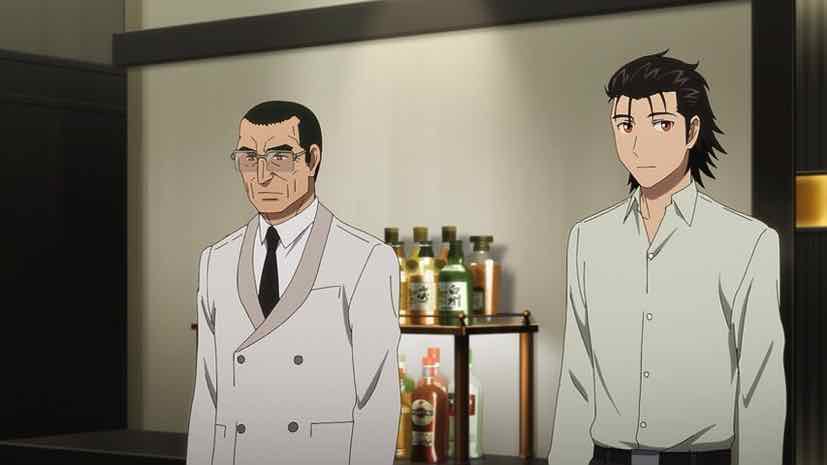
Gary Cochran
February 5, 2015 at 2:48 pmThat half a head running around laughing was as creepy as anything in anime.
sonicsenryaku
February 6, 2015 at 3:52 amthere was something about ryoko looking at shinichi's childhood pictures that really hit me; it just goes to show how motherhood is a heavy theme in this series and how shinichi losing his mother is what kicked everything off in this series. Again, I dont think shinichi's change in personality has to do with migi completely. Shinichi is suffering from the trauma off his mother's death and it has made it hard for him to emote; because he cant really emote anymore he just acts like what he imagines a non-human to act which is like migi because that was the "person" closest to him to which he can emulate. Parasyte is just one big allegory for overcoming trauma and accepting the nature of all things, whether it is your humanity, death or other living creatures.